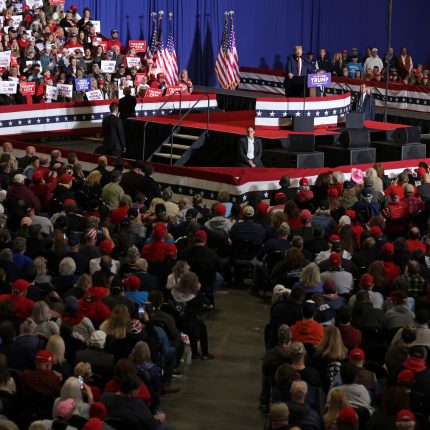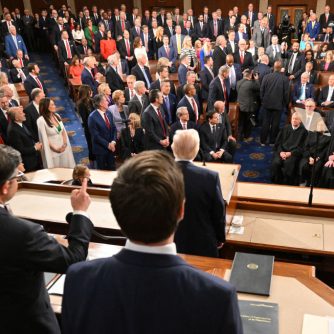On this episode of Carolina Newsmakers, Don Curtis interviews Brad Crone, President of Campaign Connections, to dissect the political landscape in North Carolina ahead of the 2024 general election. Crone offers his seasoned insights on the dynamics of high-profile races, the influence of unaffiliated voters, and the broader challenges facing the state’s political system.
Crone begins by highlighting the competitive nature of North Carolina’s political environment, labeling it a quintessential “purple state.” The discussion touches on the state legislature’s efforts to finalize the budget, which includes increased funding for law enforcement, corrections, and education programs. Crone emphasizes the significance of state-funded Opportunity Scholarships, a controversial school choice program supported by Republicans but criticized by Democrats for diverting resources from public schools.
Shifting to the gubernatorial race, Crone analyzes the matchup between Democratic Attorney General Josh Stein and Republican Lieutenant Governor Mark Robinson. He notes Stein’s substantial fundraising advantage but cautions against underestimating Robinson’s ability to mobilize conservative voters, particularly in rural areas. Crone also highlights the importance of the “coattail effect” in determining whether down-ballot races will benefit from the governor’s race dynamics.
The presidential election is another focal point. According to Crone, polling indicates a narrow lead for former President Donald Trump in North Carolina, though the race is expected to tighten. He notes that the Biden campaign is already investing in field operations to bolster voter engagement. Outside groups like Planned Parenthood are also heavily involved, particularly on issues related to abortion and reproductive rights, which could influence turnout among key demographic groups.
Crone emphasizes the critical role of unaffiliated voters, who now make up the largest voter bloc in North Carolina. He explains that these voters often lean toward one party based on household dynamics or participation in party primaries. However, truly independent voters remain a volatile and essential group for campaigns to target. Crone describes how data analytics and voter scoring are used to identify and persuade these individuals through tailored communication strategies.
The conversation delves into Council of State races, including high-stakes contests for lieutenant governor, attorney general, and state treasurer. Crone describes the lieutenant governor’s race between Republican Hal Weatherman and Democrat Rachel Hunt as a “barnburner.” He praises Weatherman’s disciplined campaign approach but acknowledges the enduring strength of the Hunt name in North Carolina politics. The attorney general race between Congressman Dan Bishop and Congressman Jeff Jackson is similarly competitive, with both candidates drawing national attention and significant campaign contributions.
Crone also offers insights into the broader state of American politics. He expresses concern about the divisiveness of the current party system, which he believes prioritizes power over governance. He critiques the age and leadership styles of both major presidential candidates, highlighting voter dissatisfaction with the choices. This frustration, Crone suggests, could lead to lower turnout compared to previous election cycles.
As the episode concludes, Crone underscores the importance of grassroots efforts in determining election outcomes. He urges campaigns to focus on voter contact and field operations, particularly in key battleground areas around metropolitan regions and rural counties. Despite the challenges, Crone remains optimistic about the resilience of North Carolina’s democratic process and its potential to serve as a model for competitive yet constructive political engagement.





